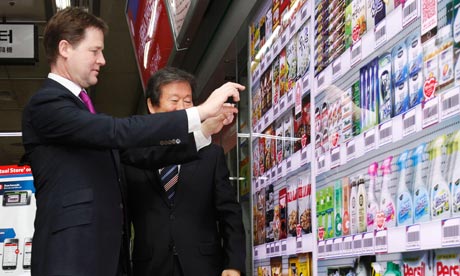During our Monday's class, a professor from University of Chicago, Richard A. Shweder, gave a lecture about "robust cultural pluralism," a term that he established the moral foundations of cultural societies of the first, second and the third world countries. In his lecture, he discussed about the three prophecies which he thought was the most important: ethical community and power, globalization of free trade, and modern nation states, respectively.
A)
The first on his list was ethical community and power which determined how a society act culturally and historically. David Miller, a leftest politician of the New Democratic Party mentioned that 'nations, cultural groups stretch backwards to the past to determine the robust pluralist culture. It is the community of obligation, where social membership is a free choice and is a living culture. Shweder wanted people to understand it is a sense of obligation where people had no choice in going about saying something about their own culture. Shweder attended two meetings which specified about culture and gender norms in a society. The first was "Culture Counts" which was held in Florence, Italy, in 1999. The conference allowed people to realize that culture plays an important role to find their identity, values, and well-being. Shweder described how some first world countries are better off than other countries, which was based on cultural inheritance of how people communicate, interact and learn from each other. The second was "Gender and Justice of Africa," a meeting held in Washington, DC. This conference was about the
The second on the list was globalization of free trade, where countries of different backgrounds, history, and culture. Free trade is when groups exchange their goods fairly amongst each other by trading modern technologies, economic institutions, and school system for the disabled people. "Boundaries determine culture," meaning that how people act, behave and build trust with each other. History repeats itself by going through the cultural and historical changes in life that brought the countries together. This created a homogeneous territories and diverse communities in the region. The income equality in Georgia and Slovenia was discussed by Shweder that 'linguistic diversity" has a equilibrium trade point to tolerate more inequality of ideological difference in different countries.
The last prophecy that Shweder discussed was about modern nation states. He briefly touched the last bit that global empires will be better than the Ottoman Empire. Since there is local control, and has no standard family life, and the way of life is compared to cosmopolitan lifestyle that the "world will turn to a global empire in the end" because of these characteristics. The hazards appointed with these are that it is a federated structure and allow local groups to operate the culture historically, politically, and culturally.
In conclusion, Shweder explained that culture affects countries in different ways whether it is in first, second, or third world countries. The expansion of new ideas change the way countries view each other through ethical power, free trade and nations.
B)
Some of the indicators for global change is due to technological and social changes. People invent new ideas and skills that would make their country better off than others. "Why makes some countries rich and others poor?," it depends on the country's standard of living, income, technology, and population.
C)
Culture is important in shaping economic outcomes because of certain factors in the society such as cultural and historical factors so yes, it is important. Cultural examples are based on network and trust among similar cultures. For example, in international business, I learned whether you are from a individualistic or a collectivist country, culture defines as who you are in the society.Culture impacts based on cultural preferences and expectations. People have their own styles of acting and behaving in certain situations such as negotiation or with friends. I am from a collectivist country, where we highly value relationships among each other and with foreigners. In negotiation, we like to get to know each other first then go right into business. Also I am from a culture where we respect people who are older than us. This can be understood by people in my country who experienced it before. Others might not be aware of the relationships but South Koreans highly believe in respect and building long lasting relationships. History speaks for itself, we as people of history understand how our country became what it became today through economic, political, historical, and social changes in life. Culture defines us as who we are in the society we are from.
